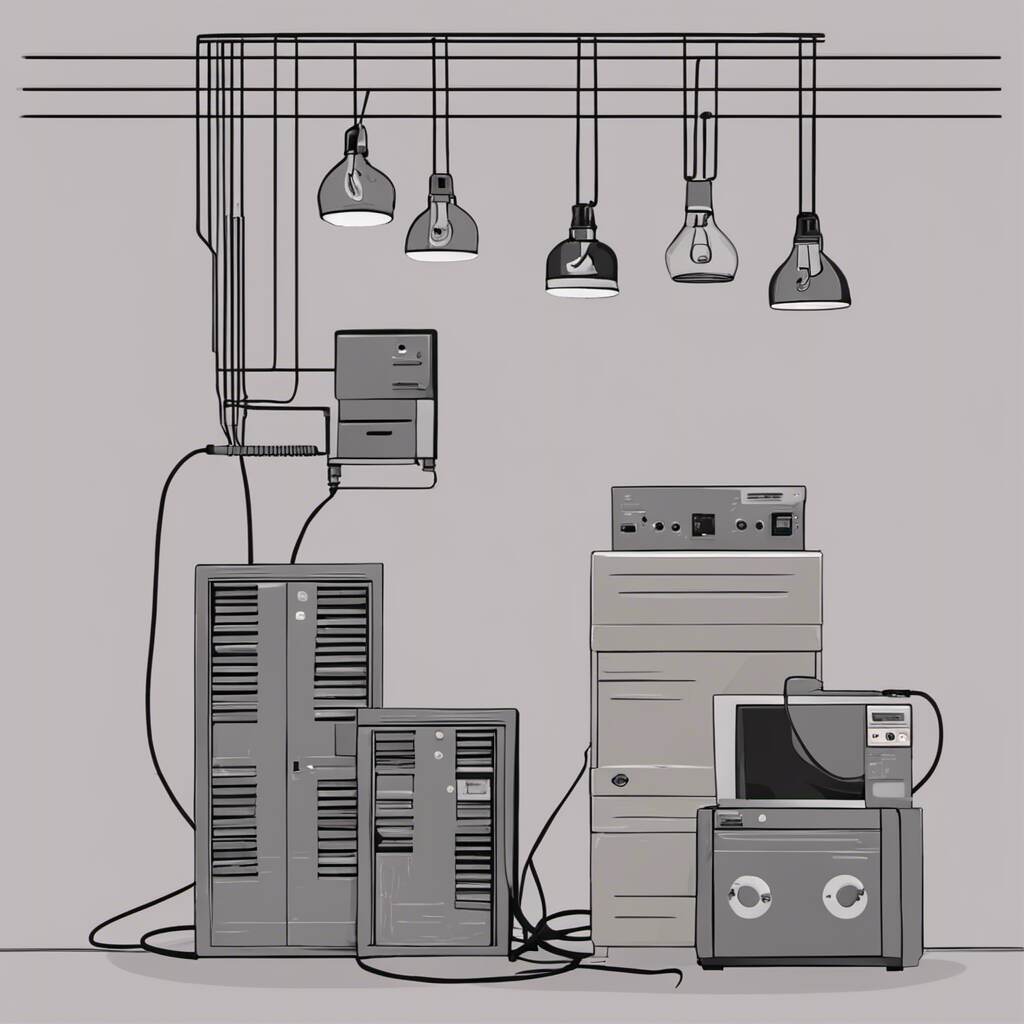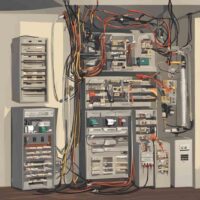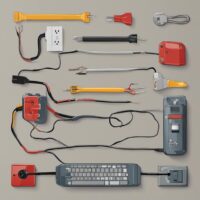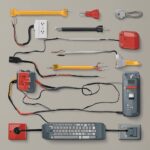
Electrical repairs at home may seem like a simple task, but it is crucial to approach these tasks with the utmost caution and care. Electrical work can be dangerous and potentially fatal if not done properly. Therefore, it is essential to follow the necessary safety measures to ensure the well-being of yourself and your loved ones. In this article, we will discuss 12 important safety tips for electrical repairs at home, providing you with valuable information to keep you safe.
1. Shut off the Power – Before you start any electrical repairs, always remember to shut off the power to the affected circuit or to the entire house. This can be done by switching off the corresponding circuit breaker or removing the fuse. Always double-check with a voltage tester to ensure that the power is off before proceeding.
2. Avoid Water and Moisture – Water and electricity are a lethal combination. Never attempt electrical repairs in wet or damp areas, such as bathrooms or kitchens. Make sure your hands are dry and the area you are working in is dry as well. If there is any water present, wait for it to dry completely before starting any repairs.
3. Use the Right Tools – Always use insulated tools specifically designed for electrical work. These tools are made from non-conductive materials, which reduce the risk of electrocution. Using improper tools can lead to accidents and injuries.
4. Wear Protective Gear – Protect yourself by wearing appropriate safety gear, such as insulated gloves, safety glasses, and non-slip shoes. This will help minimize the risk of electric shock and injury during electrical repairs.
5. Check for Frayed Wires – Before starting any repairs, inspect all wires for fraying, cracks, or damage. Frayed wires can cause short circuits and electric shocks. Replace any damaged wires immediately with the proper gauge wire.
6. Use GFCI Outlets – Ground Fault Circuit Interrupters (GFCIs) are designed to protect you from electrical shock. Install GFCI outlets in areas where there is a risk of water contact, such as bathrooms, kitchens, and outdoor areas. This will provide additional protection from electrical hazards.
7. Avoid Overloading Circuits – Overloading circuits can lead to overheating and electrical fires. Distribute your electrical devices and appliances across multiple circuits to avoid placing too much strain on one circuit. Consider installing additional circuits if necessary.
8. Follow Proper Wiring Techniques – When wiring or rewiring electrical fixtures, ensure that you follow proper techniques. Make secure connections, use wire connectors, and properly insulate all exposed wires. Incorrect wiring can lead to electric shock, fires, and other hazards.
9. Test GFCIs and Smoke Detectors Regularly – Regularly check your GFCIs and smoke detectors to ensure they are working correctly. Follow the manufacturer’s instructions for testing and maintenance. These devices play a vital role in detecting electrical faults and preventing potential disasters.
10. Do Not DIY Complex Electrical Repairs – Know your limitations and do not attempt complex electrical repairs if you lack the necessary knowledge and skills. Leave these tasks to qualified electricians, who have the expertise to handle complex electrical systems safely and effectively.
11. Learn to Use a Fire Extinguisher – It is crucial to have a fire extinguisher readily available in case of electrical fires. Learn how to use it correctly and keep it in a prominent and easily accessible location. A fire extinguisher can help prevent a small fire from escalating into a major disaster.
12. Take Precautions During Power Outages – During power outages, unplug sensitive electronic equipment to protect them from power surges when the electricity is restored. Use battery-powered lights or flashlights instead of candles to maintain visibility. Avoid using portable generators indoors to prevent carbon monoxide poisoning.
Conclusion
In conclusion, electrical repairs at home require diligent attention to safety. By following these 12 important safety tips, you can minimize the risk of accidents, injuries, and potential disasters. Always remember that electrical work can be hazardous, and if you do not feel confident or lack the necessary knowledge, it is best to consult a professional electrician. Stay safe and ensure the well-being of yourself and your loved ones.




